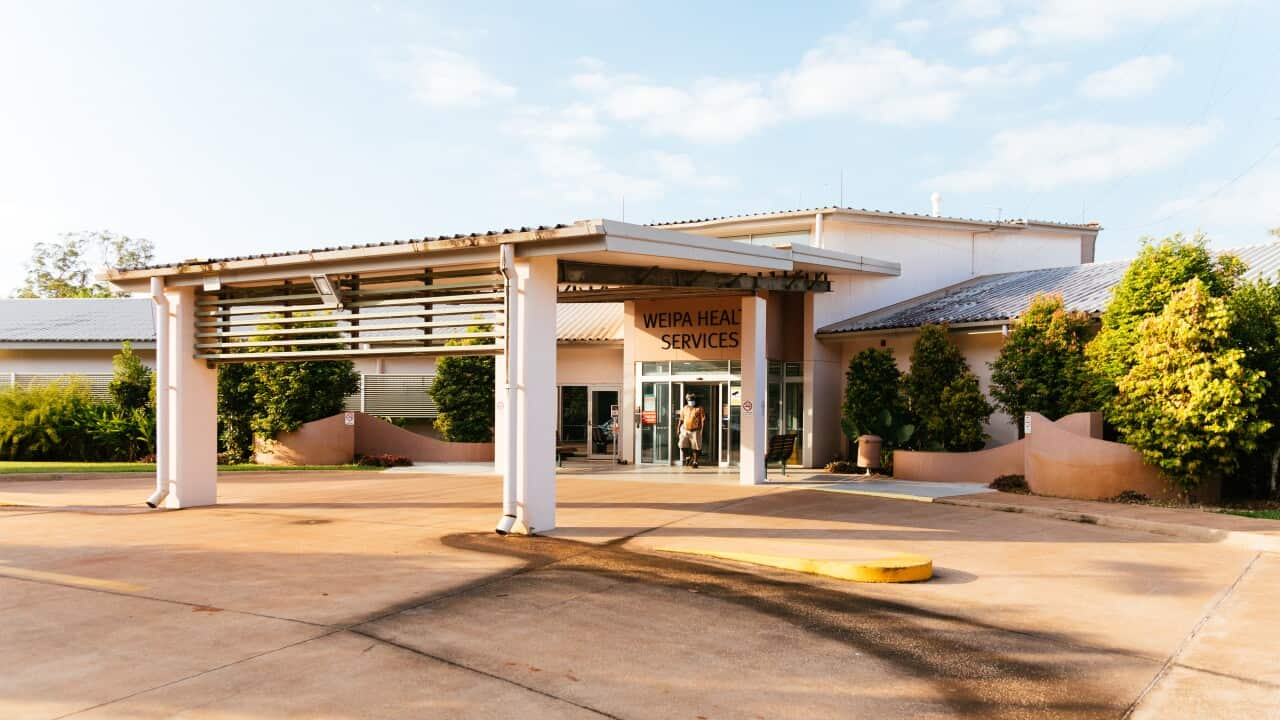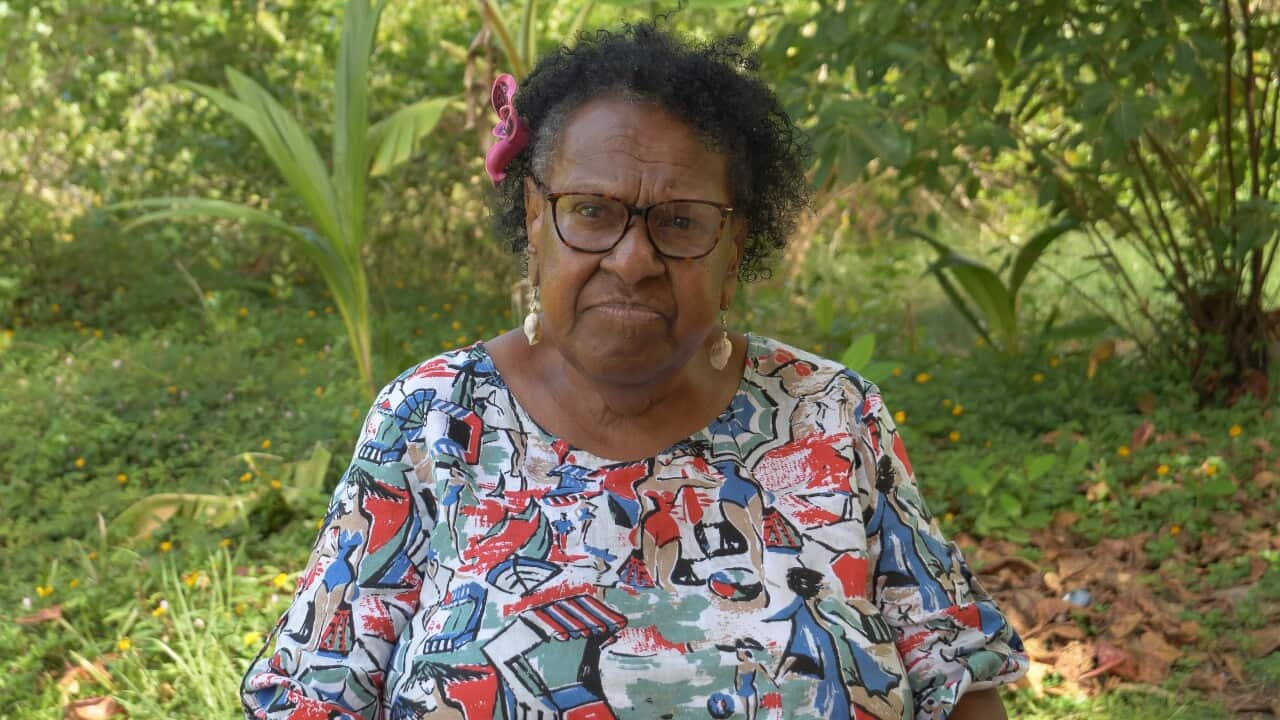Thirty years ago, there were no Torres Strait Islander doctors.
Now, the Australian Indigenous Doctors Association (AIDA) has taken a group of Torres Strait Islander doctors from the mainland to the islands for the first time.
For many of the students and doctors, it’s the first time they’ve been on Country.
They heard firsthand from Elders about the remote health experiences of First Nations People.
Jade Abernethy, a medical student at the University of Newcastle, said it was overwhelming seeing so many Torres Strait Islander doctors in one place.
“It's been very emotional,” she said.
“Having the Uncles come forward and speak on behalf of the communities ... was really important.
“I think it highlights that ... historically there was a big deficit in the Torres Strait for access to health care, and it does have implications on community and family members.”

Medical Student Jade Abernethy said she was keen to hear from communities what they needed most. Credit: NITV
Ms Abernethy said she was excited to also be visiting schools and talking to young people aspiring to become doctors.
“I think it can be very isolating, being an Indigenous person in a very historically non-Indigenous system,” she said.
“One thing that's really, really helped me through my studies is my friendships with other Indigenous students.
“There’s a lot more support than [there] was 20 years ago.”
Happy workplace, happy doctors

AIDA CEO Donna Burns said she hoped to make the gathering happen more regularly. Credit: NITV
She said the organisation had recently struck a deal with Queensland Health to help provide training on culturally safe practices.
“This is really new, and Dr. Katherine McDougal, who is the Acting Chief Health Officer, was with us this morning here [on Waiben],” she said.
“We are really trying to actively work with them to understand cultural safety, and they're really engaging in that so it's fantastic.”
She said the work AIDA did was made possible by communities who were continuously pushing for better participation in their own health.
Calls for better access
The historic congregation on Waiben comes as calls for more assistance on dialysis were answered by the federal Assistant Minister of Indigenous Affairs Malarndirri McArthy.
Wakaid Tribal Elders have been in discussions with the federal government about remote dialysis units on Badu Island in the Torres Strait.
Elder Uncle Robert Sagigi is a renal dialysis patient who fought for the ten chairs on Waiben.
“The chairs here are full all the time and most of our people are down in Cairns [for treatment] … they want to come back home” he said.
“When you leave your Country, you leave your home, your family go with you and everything's down, cultural protocols … everything's smashed.
“It's our responsibility, our tribal, cultural responsibility for our people. We must get them back home, not in a body bag”
Senator Malarndirri McCarthy said applications had closed on the thirty, four-chair dialysis units that the federal government had promised.
However, she said she was working closely with the Badu tribal Elders to secure one four-chair unit for the Torres Strait.
“In terms of looking very seriously at the possibility of Badu Island and having four dialysis chairs, clearly, we have to be reassured in terms of water quality,” she said.
“That is a really big issue for many of our communities across the country, in particular, in the desert Country.”
'Our geography is not a barrier'
Mabuyag Island woman Dr Jaquelyne Hughes is the only Torres Strait Islander nephrologist (kidney specialist) in the country.
Dr Hughes said the federal funding wouldn’t cover all of the infrastructure needed to set up the facility.
She said accommodation needed to be addressed to ensure patients travelling from other islands to Badu would be safe.
“Our geography is not a barrier because living on our Country is our strength,” she said.
“It would help and support our family members living with that level of health care needs, at home,” she said.

Dr Jaquelyne Hughes is a trailblazer in the industry.
“We have an abundance of saltwater in our saltwater country,” she said.
“Making sure that there's the right amount of quality water for dialysis treatment needs without infringing on just general community water needs, that's really important.”
Mr Sagigi said once the renal unit was set up, the Torres Strait needed to focus on diabetes prevention.
“We don't want our people to sit on renal,” he said.
“You have to add education, you have to have promotion, and you got to get all people to cut out soft drink and all them things.”
“The change is you, only you can make that change.”












